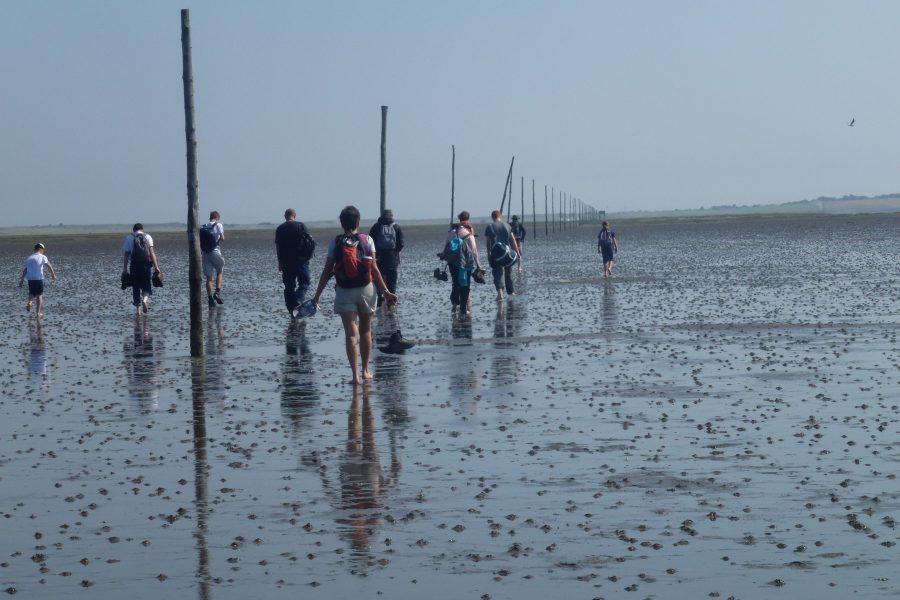On Saturday I had the joy of facilitating an event where some Christians met together to spend time sharing their experiences and exploring pilgrimage, reflecting on how this notion might connect usefully with their Christian lives and ministries. In some ways what we were doing was a bit like going on a pilgrimage to pilgrimage.
One of the features of a pilgrimage is that you meet with people. Some of them might be people you know, others strangers. As you travel together you share stories, you find out strange things that make you rethink the other person or yourself, and connections that might surprise you. Our event participants came from all over the Anglican diocese of Newcastle, where some parishes cover hundreds of square miles and there are more sheep than people, while others are in densely populated towns and in our city. For many, their church buildings are important destinations for members of the local population, mainly at times of special life events or, on occasion, community crisis.
Some are on ancient pilgrim routes, to Lindisfarne, for example, where Aidan and Cuthbert centred their work of bringing the Good News to Northumbria. Other routes are overlaid with more recent history and forgotten – not so many people know now that Jesmond, an upmarket suburb of Newcastle, is named for Jesus’ Mount, a major place of pilgrimage for people in the Middle Ages.
There are newer pilgrim routes, too, celebrating our landscape and the early saints we are so proud of up here, who were firebrands and trailblazers in their day: Hilda, who built and sustained communities and brokered a politics of fruitful compromise among the great and powerful; Bede, whose pioneering scientific work gives the lie to the label dark ages that has for so long been given to his times.
All of this heritage we in the northern wilds tend to be fiercely proud of, while at the same time taking it utterly for granted. This was something that brought us up short in our conversations and made us think about how we treasure what we treasure and whether we could do it better. And it was meeting each other and having conversations that showed us this unexpected insight.
Pilgrimages are events of paradox. You travel far away from home to find something new and special, sometimes with specific outcomes in mind: penance done, healing received – but your plan includes returning home, perhaps transformed but nonetheless returning. And often it is the unexpected outcomes that are most important, not the ones you set out to achieve.
On a pilgrimage, you are travelling towards the past in hope of transforming your future. The place of pilgrimage is always, of course, connected to the past. Imagine going on a pilgrimage to a random field or industrial estate because of something you have an inking might happen there some day? No, you go to a place where something has happened – Lourdes, for example – or somewhere where a person is buried or remembered – Mecca – or a place where the air is thick with the prayers and actions of people who went there before you – Lindisfarne. And although these are places that have proved themselves special in the past, yet your focus at the same time is on your own future, or the future of your community.
And, for almost every pilgrim, it is not easy by the end of your travels to work out whether it was the journey or the destination that mattered most.
But although we had all travelled to one place to meet, we weren’t on a pilgrimage on Saturday. We had travelled separately and the venue held no promise other than being the place we had decided to meet. And the important work was done at our destination, not as we walked along. Nonetheless we did some of the work we would have done on a pilgrimage.
I’m glad I’ve written myself out of what was a metaphor so neat it was a cliché: nonetheless it was interesting, unexpected and enlightening to spend the morning together journeying with the idea of pilgrimage, encountering each other and the northern saints and noticing things in our lives as disciples of Jesus that had, it seemed, been hiding in plain sight.
Paula Gooder wisely points out that while we tend to think of the word disciple as essentially meaning follower it actually means learner. A pilgrimage brings the two meanings together. Can we learn without travelling, without moving from where we are, at least in our thinking? And can we travel (even along a train of thought) without learning, or at least being given opportunities to learn?
